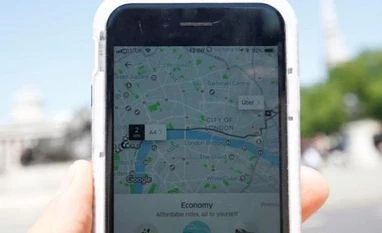When Uber and Lyft go public this year, their founders, top executives and investors are set to reap billions of dollars in new wealth.
But one group that helped build up the ride-hailing companies will miss out on most of the rewards: their drivers.
That’s because while Uber’s and Lyft’s full-time employees and investors own company stock that they can convert into cash after the initial public offerings, the millions of drivers who ferry passengers around for the services are independent contractors. That has made them ineligible for stock grants — and bystanders to the coming I.P.O. bonanza.
Now Uber and Lyft, facing the growing inequity between its stockholders and its drivers, are pursuing measures to address the gap. Both intend to set up programs to give cash to some drivers, enabling them to buy company stock at the time of the I.P.O., according to two people who have been briefed on the plans. The drivers can also keep the cash as a bonus, said the people, who declined to be named because they were not authorized to speak publicly.
The programs will not give drivers a major share of Uber’s and Lyft’s stock. Lyft plans to give $1,000 each to drivers who have completed 10,000 rides for the service; those who have done 20,000 rides will receive $10,000, one of the people said. Uber is still mulling its cash program and payout amounts, but they will also be tiered, another person said.
Some in Silicon Valley greeted the move as an awakening by Uber and Lyft. Eric Ries, author of the start-up world’s bible, “The Lean Startup,” and chief executive of LTSE, a new stock exchange, said the move hinted at these companies’ priorities.
“The next generation of companies understand their obligation to share power and prosperity with the community that made them successful,” he said. “It’s no longer optional.”
But many Uber and Lyft drivers had a different view. Don Creery, an Uber and Lyft driver who previously worked on a campaign in Seattle to win collective-bargaining rights for ride-hailing drivers, called the programs a “token gesture.”
“I think we would probably rather get what we wanted all along, which is a fair rate of pay and make enough money to buy stock in companies that might actually be valuable,” Mr. Creery said. Still, he gave the companies credit for “certainly acknowledging us.”
Bhairavi Desai, executive director of the New York Taxi Workers Alliance, an organization that represents taxi and ride-hail drivers, called the efforts by Lyft and Uber “a slap in the face,” especially since the companies “are going to go public on the sweat of the drivers.”
The issue is galling to many drivers because the public offerings of Uber and Lyft are set to mint a new class of billionaires out of an elite group of Silicon Valley entrepreneurs and investors. Uber is estimated to go public at a valuation of as much as $120 billion, and one of its founders, Travis Kalanick, has already become a billionaire by selling some of his company stock to private investors. Lyft, which is likely to unveil its initial public offering prospectus on Friday, was last valued in the private market at just over $15 billion.
Drivers, who have long been at the heart of the ride-hailing business, have made attempts to change their status with Uber and Lyft so that they can be classified as full-time employees. Becoming full-time employees would also give them access to health care benefits and other perks.
But the companies have successfully beaten back these efforts. In California, Uber and Lyft have fended off lawsuits that aimed to win employee status for drivers. In New York, Lyft recently sued to overturn new legislation that would give drivers a minimum hourly wage of about $17.
Uber and Lyft declined to comment on drivers’ reception of the programs. The cash programs were earlier reported by The Wall Street Journal.
Uber has tried to improve its relationship with drivers over the past 18 months, allowing them to accept tips for the first time starting in 2017. In October, Uber asked in a letter to the Securities and Exchange Commission to be allowed to grant equity to drivers even though they are not employees. Uber did not hear back from the S.E.C., one of the people said.
Ultimately, the cash programs would not give drivers the opportunity to earn money from stock in the same way that employees do, said Mary Russell, a lawyer and founder of Stock Option Counsel, a firm that consults with employees on stock compensation.
“It doesn’t seem like a meaningful change to their compensation, in my view,” she said. “It’s more a thank-you for the past and a one-time event.”
Unlock 30+ premium stories daily hand-picked by our editors, across devices on browser and app.
Pick your 5 favourite companies, get a daily email with all news updates on them.
Full access to our intuitive epaper - clip, save, share articles from any device; newspaper archives from 2006.
Preferential invites to Business Standard events.
Curated newsletters on markets, personal finance, policy & politics, start-ups, technology, and more.
)